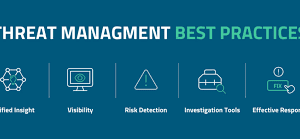The utilization of artificial intelligence in the field of human resources is rapidly increasing. In a recent study conducted by Eightfold AI, it was discovered that 92% of over 250 HR executives intend to boost their utilization of AI in some aspect of HR.
AI is gradually making its presence known in all aspects of the HR sector, from recruiting and welcoming new employees to managing performance and assessing employees through engagement and planning for the workforce.
AI in HR: Past and Present
Former times: Initial discovery and testing
AI-driven human resource tools, including applicant tracking systems and resume screening software, emerged in the early 2000s. With technological breakthroughs, AI in HR increased its spectrum of capabilities in the 2010s. Those eager to adopt new technology can now experiment with HR software development for recruiting people, managing performance, and improving employee involvement.
Significant investments in AI-powered HR systems have resulted in more advanced machine learning algorithms. That allowed computers to learn from data, adapt, and improve over time, resulting in predictive analytics and intelligent insights.
The Present: Rapid Advancements and AI Integration
The application of AI in HR is expanding rapidly. According to IDC’s Future of Work research, by 2024, 80% of global 2000 organizations would utilize algorithmic managers to hire, fire, and train employees.
According to Eightfold AI’s Future of Work survey, the top five functions for which HR departments are now adopting AI technology are:
- Employee record management (78%)
- Payroll processing and benefit administration (77%)
- Recruitment and hiring (73%)
- Performance management (72%)
- Onboarding (69%)
The Surge in Generative AI
It is impossible to discuss current advancements in generative AI in HR without mentioning generative AI, specifically ChatGPT. Human resource professionals can use ChatGPT in a variety of ways, including:
- Eradicating repetitious chores
- Accelerating the talent search
- Examining qualitative HR data
Will AI take the Role of Human Resources?
There are numerous myths concerning AI in HR and whether this technology will replace humans in their occupations. In an article about whether AI can replace HR, Gartner explained:
“AI tools are intended to improve human capabilities and can help with task delegation. Instead of completely replacing employees, technology will be integrated into most of their activities.”
However, the field of human resources will not be immune to the effects of AI and automation. Unsurprisingly, more repetitive and less complicated tasks are more susceptible to automation, whereas roles requiring problem thinking are less likely to be automated.
What are the Advantages of AI in HR?
There are numerous advantages to implementing artificial intelligence in HR procedures. Let’s look at some of the ways artificial intelligence can help organizations.
1. Job satisfaction of employees
By utilizing artificial intelligence, you can provide your employees with a tailored experience. They get their questions answered more quickly thanks to an AI-driven chatbot.
Employees do not need to schedule a meeting with HR or expect a response to their email for simple questions. Furthermore, workers receive customized onboarding and training recommendations.
2. Eliminate prejudice
AI in HR supports making data-driven decisions in important processes like recruiting, performance evaluation, and leadership preparation.
HR must be conscious that the candidate’s background should not impact hiring decisions. Artificial intelligence can guarantee a fair selection of candidates during all screening stages in the HR selection process.
3. Making wise decisions
AI tools in HR assist in organizing data effectively within a centralized data repository. Human resources and other stakeholders can easily access that data whenever they require it.
Owning precise information enables you to make educated choices and be clear of misunderstandings or biases. Simplified analytics allows us to make smart and effective strategic choices.
4. Decrease in Expenses
Implementing artificial intelligence guarantees decreased time and labor expenditure in manual record-keeping or documentation.
Furthermore, the HRMS software provides accurate data and calculations, which help save costs on corrections for tasks like payroll and performance evaluations.
5. Increased productivity
Businesses that utilize AI in human resources technology can enhance the effectiveness of the HR department.
AI streamlines many routine duties like handling attendance and time off requests, reducing the need for paperwork. The reduction of human involvement leads to fewer errors, resulting in HR receiving accurate data.
Applications of AI in HR
Artificial intelligence has various applications across different areas of human resources. Businesses in India that implement AI in their HR departments have the potential to greatly enhance their productivity.
Moreover, embracing technology like machine learning in HR and predictive analytics soon with AI can assist companies in securing a competitive edge in the market and implementing cost-effective measures.
1. AI in Employee Engagement
Artificial intelligence has various applications across different areas of human resources. Businesses in India that implement AI in their HR departments have the potential to enhance their productivity.
Moreover, embracing technology like machine learning in HR and predictive analytics soon with AI can assist companies in securing a competitive edge in the market and implementing cost-effective measures.
2. AI in Onboarding
The onboarding process is crucial for the employee’s journey as it creates one of the first and last impressions for the employee. AI can distribute different rules to employees, provide in-depth job outlines, and share training timetables.
Furthermore, artificial intelligence can also facilitate the sharing of pertinent candidate information among team members and the communication of team information to new members.
3. AI in Talent Acquisition
Finding talent is a challenging job for the HR team. AI can assess the future requirements of employees for the organization and select a group of possible candidates for future consideration by the company.
AI can be utilized for initial screening by posing queries and collecting data on skills, education, and experience. Furthermore, AI can also be utilized to maintain contact with prospective employees for the firm.
4. AI in Performance Management
Effective administration is essential in all businesses. It needs to be performed regularly and impartially for it to be successful. Regrettably, most organizations conduct reviews annually or semi-annually, which fail to present a comprehensive evaluation.
Because humans are susceptible to the ‘Halo Effect’ or ‘Recency Bias’, reviews are frequently swayed by recent events or the initial impression of the individual.
Additionally, most companies conduct performance evaluations as a mere formality, and workers react with a similar mindset, rendering the entire process pointless.
5. AI in Recruitment
Human resources management is always seeking to integrate AI into recruitment processes, which is not unexpected. AI can streamline the complex process for better results. The job posting initiates the process and it goes on until the employee is successfully onboarded.
AI can assist HR professionals by scanning resumes, eliminating the need for them to individually assess each application to identify appropriate candidates. HR departments can take additional steps to implement AI technology for scheduling interviews. It can keep candidates informed.
Conclusion
Companies using AI in HR be careful when choosing tools to maximize AI benefits in their human resources department. AI in HR presents both challenges and opportunities for HR tools.
Analyzing the requirements of your staff first and then evaluating the available choices is the most effective approach. Ensure data privacy measures are taken and do not overlook the significance of human intellect and emotion in the decision-making process.
Read More From Techbullion And Businesnewswire.com



































